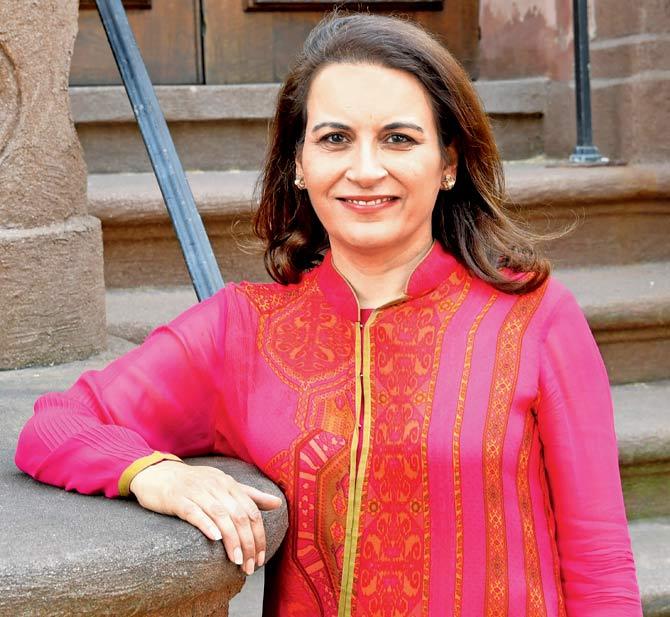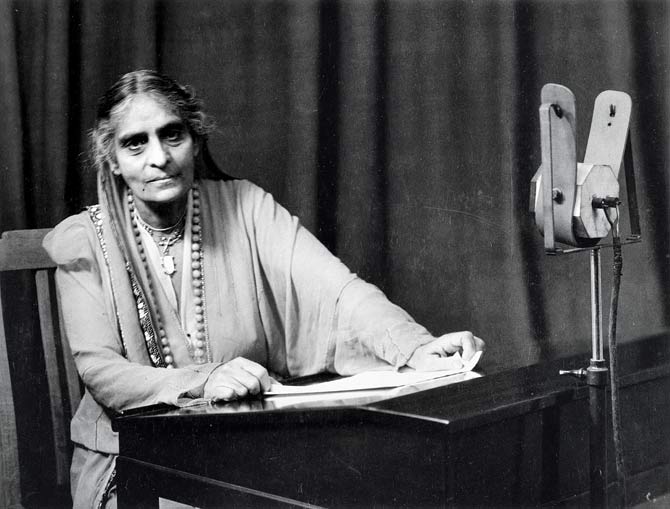A new mystery novel by US-based Sujata Massey takes us into 20th century Bombay, where a woman lawyer becomes the face of a murky murder case


Sujata Massey. Courtesy/Jim Burger
ADVERTISEMENT
As fascinated as this nation is with its history, the story of Cornelia Sorabji (1866-1954), the first woman lawyer of the British Empire, appears to have long eluded us. It was only in November last year, when Google Doodle celebrated Cornelia's 151st birthday, did many, including this writer, grow acquainted with this trailblazing barrister from Poona, for the first time. While we could blame our own history textbooks for not judiciously representing the likes of Sorabji, a new mystery fiction, A Murder On Malabar Hill (Penguin Random House) by Washington DC-based author Sujata Massey, does its part to fill the gap.
 The protagonist of the novel is inspired by Indian barrister Cornelia Sorabji (1866-1954). Pic/Getty Images
The protagonist of the novel is inspired by Indian barrister Cornelia Sorabji (1866-1954). Pic/Getty Images
Set in Bombay of 1921, Massey's work tells the story of an intrepid Parsi girl named Perveen Mistry, who joins her father's prestigious law firm, Mistry Law, to become Bombay's first female lawyer. Her inspiration is Cornelia, a specialist advocate for purdahnashins - women prohibited from communicating with men, whose career path Perveen closely follows, so much so that she not only chooses to go to Oxford like her, but also returns to Bombay with the intention of championing the cause of women. "Cornelia, who was of mixed Parsi and tribal ancestry, was the first female graduate of Bombay University and went on to be the first lady to sit and pass the bachelor of civil law examination at Oxford University. At the time, Oxford would not grant women degrees, nor would the London Bar recognise them. Nevertheless, Cornelia was qualified as a solicitor and headed back to India with enthusiasm to work.
Though, it was quite hard for her to convince anybody to hire her, she did work in a number of interesting venues through the 1920s," said Massey in an email interview. "Luckily for me, she left a lot of letters and memoirs detailing her work on behalf of hundreds of women and children throughout British and princely India." It was while studying Cornelia's memoirs, and that of another Bombay-bred Parsi woman Mithan Tata Lam, who became the first woman to be admitted to the Bombay Bar in 1923, that Massey brainstormed to create Perveen, an Indian lawyer heroine whose cases were filled with intrigue and danger.
In the novel, Perveen is appointed by her father to look into the execution of the will of Omar Farid, a wealthy mill owner from Malabar Hill, who has left behind three widows, who live a life in seclusion and are at the mercy of an unscrupulous guardian Mukri. What piques her curiosity is a provision in the will, which could disinherit the widows. An unexpected murder and a series of bizarre circumstances that follow, see Perveen surreptitiously take on the role of sleuth, to protect the rights of her clients.
"I believe there's no such animal as a milquetoast woman sleuth," said Massey, who is most known for her award-winning mystery series on Rei Shimura, a Japanese-American female sleuth. "For a woman in 1920s India, to be able to be present at a murder scene, and convince the important men in uniforms that she knows something of value, is a tremendous stretch. I believe it's possible for Perveen because she's a lawyer, and many cases can involve concerns about theft, wrongful death, infidelity, and more." That Perveen appears to be far ahead of her times - she believes she has the right to her own romantic destiny and convinces her father to let her work with him in a law practice - makes her a perfect candidate.
Having said that, this novel, among other things, is also a reflection of how unfairly the law and system was being used and abused against women in 20th century India. That was intentional, said Massey. "While the British were in power, they codified religious laws for the various communities with a few powerful Indian men they respected. The laws for Hindus and Sikhs, Muslims, Parsis and Christians mandated the amounts that women could inherit after a spouses' death (if at all) and what grounds would be allowed for divorce. There were some communities, like Hindus, who could not divorce for any reason until after independence. I thought it would be interesting to have a woman lawyer who was very motivated to stand up for women and children because of her own experience being unable to control her destiny," she said.
Catch up on all the latest Crime, National, International and Hatke news here. Also download the new mid-day Android and iOS apps to get latest updates
 Subscribe today by clicking the link and stay updated with the latest news!" Click here!
Subscribe today by clicking the link and stay updated with the latest news!" Click here!






